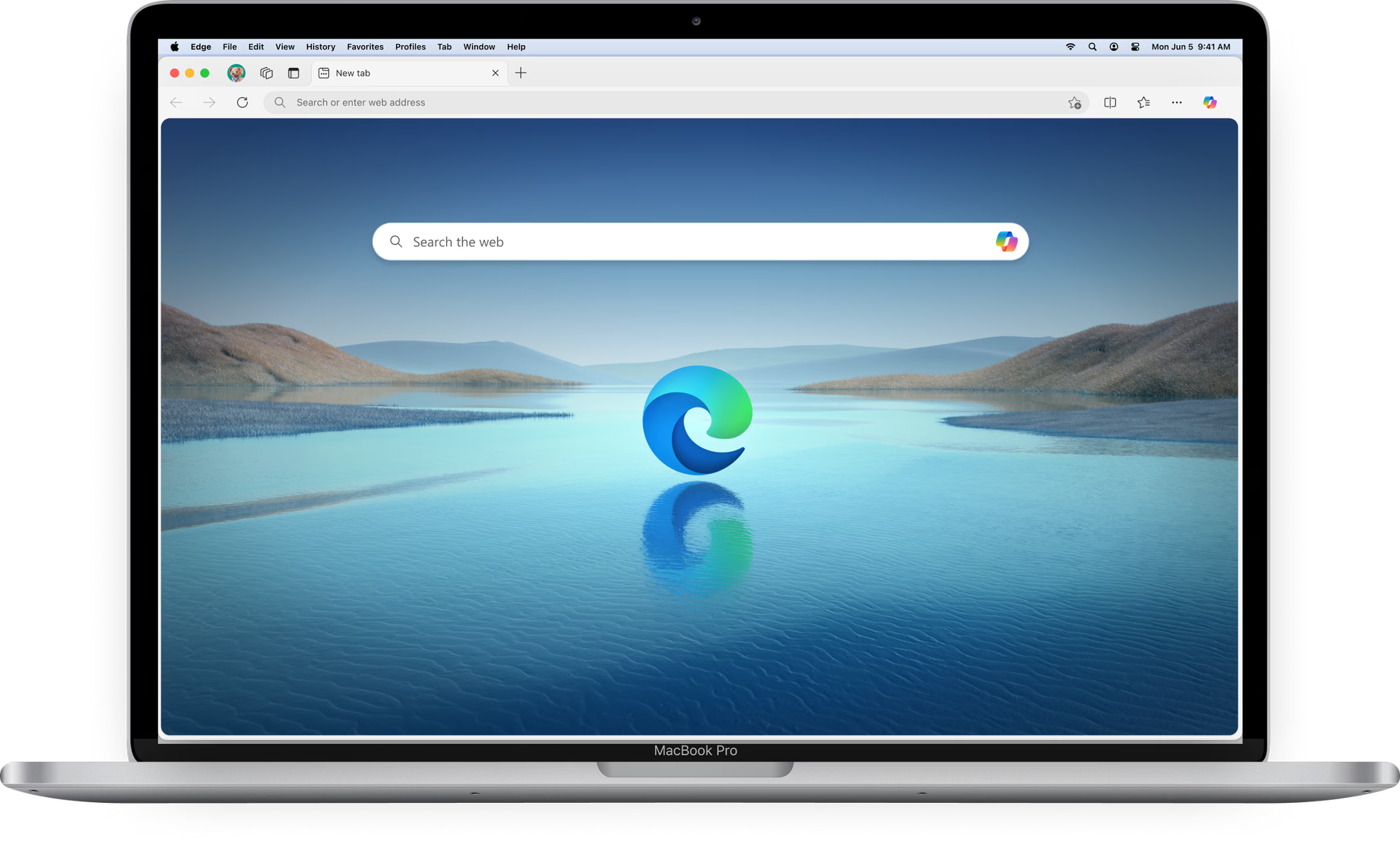I gave Microsoft Edge a fair shot. Then Chrome handled my recon tabs without breaking a sweat.
A few months ago, I did something radical—for a FOSS advocate anyway. I closed Chrome, opened Microsoft Edge, and told myself: “Let’s give the other Chromium a shot.”
I wasn’t just browsing. I was testing workflows I rely on: ethical hacking toolkits in the browser, DevTools stress tests, cross-platform syncing, and the invisible little things that matter when you’re juggling recon tabs, local scripts, and VPN hops from a battered Linux laptop.
Edge surprised me. Smooth, fast, and surprisingly privacy-conscious—especially for something from Microsoft. But when I put it head-to-head with Chrome for my daily use as a developer and ethical hacker, the cracks began to show.
So which browser truly fits the FOSS-minded power user in 2025? The answer might not be what you’d expect.
Let’s break it down.
- Why I Switched to Microsoft Edge (And Why I Came Back to Chrome)
- Browser Showdown for Ethical Hackers: Chrome vs Microsoft Edge
- Quick Comparison: Microsoft Edge vs Chrome for Ethical Hackers
- Final Verdict: Chrome Is Still the Hacker’s Browser
- Why Chrome Still Wins (For Now)
Why I Switched to Microsoft Edge (And Why I Came Back to Chrome)
A while ago, I decided to live dangerously and swap Chrome for Microsoft Edge—just to see how it would perform under my day-to-day ethical hacking and FOSS development routines.
At first? Smooth. Polished. A corporate kind of quiet.
But as the weeks rolled by and my workflow demanded more from the browser—Edge’s sheen started to crack. If you’re an ethical hacker or open-source enthusiast looking for a browser that doesn’t get in your way, the contrast becomes impossible to ignore.
Let’s compare them side by side.
Browser Showdown for Ethical Hackers: Chrome vs Microsoft Edge
This isn’t about tab syncing or Netflix streaming. This is a real-world breakdown of which browser delivers when you’re knee-deep in reconnaissance, OSINT, and dev testing.DevTools: Familiar, Fast, and FOSS-Friendly
DevTools: Familiar, Fast, and FOSS-Friendly
Chrome:
Chrome’s DevTools are the industry standard for a reason. From live-editing scripts and CSS to analyzing network calls and manipulating headers, Chrome gives you granular control—and behaves exactly how seasoned hackers expect.
Microsoft Edge:
Edge uses the same Chromium core, but its DevTools feel just different enough to be annoying. Minor UX tweaks make inspection slower for power users. You can make it work—but why fight the defaults?
Verdict:
Chrome, hands down.
Extension Ecosystem: The Hacker’s Toolkit
Chrome:
If you’re relying on tools like Wappalyzer, Cookie-Editor, or custom-built data scrapers, Chrome gives you deep access and a massive library. Many security-focused extensions get updated here first.
Microsoft Edge:
Edge can install Chrome extensions—but not all behave consistently. Some OSINT tools just quietly fail or misfire. Compatibility is a gamble.
Verdict:
Chrome wins on flexibility and reliability.
OSINT and Recon Workflows
Chrome:
Running Sherlock reports, cross-referencing usernames, or checking paste sites? Chrome’s speed, tab memory handling, and copy-paste behavior just feel smoother. When your recon has 30+ tabs open across VPN chains, these details matter.
Microsoft Edge:
While Edge is fast in isolated tasks, it can lag under stress. Worse: its memory management aggressively closes background tabs, killing passive recon workflows mid-stream.
Verdict:
Chrome lets you work like a ghost. Edge… keeps tidying up.
Script Testing and Local Dev Environments
Chrome:
For ethical hackers running local servers, tunneling tools, or proxy testing, Chrome is stable and predictable. Port forwarding, service workers, and CSP headers behave as expected.
Microsoft Edge:
Some custom headers and cookie behaviors are inconsistent. And occasionally, Edge blocks localhost scripts or flags unsigned certs more aggressively—even with safe test setups.
Verdict: Chrome gives you fewer headaches in controlled environments.
· · ─ ·𖥸· ─ · ·
Quick Comparison: Microsoft Edge vs Chrome for Ethical Hackers
To cut through the noise, here’s a straightforward side-by-side look at how Microsoft Edge and Google Chrome stack up in critical areas that matter most to ethical hackers, OSINT researchers, and FOSS developers. From DevTools power and extension reliability to handling complex recon workflows, this comparison highlights where each browser excels—or falls short—so you can make the best choice for your daily hacking and development grind.
| Feature | Google Chrome | Microsoft Edge | Winner |
|---|---|---|---|
| DevTools | Industry standard, fast, granular control, FOSS-friendly | Chromium-based but UX tweaks slow down power users | Chrome |
| Extension Ecosystem | Largest, most reliable, security-focused extensions updated first | Can use Chrome extensions but some fail or behave inconsistently | Chrome |
| OSINT & Recon Workflows | Handles 30+ tabs under VPN smoothly, better memory management | Aggressive tab closing disrupts passive recon workflows | Chrome |
| Script Testing & Local Dev | Stable, predictable with local servers, proxies, CSP headers | Inconsistent header/cookie behavior, stricter with localhost certs | Chrome |
| Speed & Responsiveness | Consistent under load, fast tab switching | Fast in isolation but lags with multiple background tasks | Chrome |
| Privacy & Security | Strong privacy options, well-known quirks | Better integration with Windows security, but heavier telemetry | Tie (Contextual) |
| Cross-Platform Sync | Reliable syncing across devices, open on Linux, macOS, Windows | Great Windows integration, limited Linux support | Chrome |
· · ─ ·𖥸· ─ · ·
Final Verdict: Chrome Is Still the Hacker’s Browser
Microsoft Edge might look sharper out of the box, but when you’re relying on your browser as a tool—not just a window—it needs to perform under pressure.
For ethical hackers, penetration testers, and FOSS-minded developers, Chrome still wins:
- Cleaner DevTools flow
- Broader extension support
- More stable under stress
- Predictable behavior with test environments
It’s not about nostalgia—it’s about control.
· · ─ ·𖥸· ─ · ·
Why Chrome Still Wins (For Now)
Despite the slick UI, deep integration, and modern features Microsoft Edge offers, Chrome holds the crown for those who work in the gray areas of ethical hacking and open-source development. Its battle-tested DevTools, broader extension ecosystem, and raw familiarity with the underground of browser-powered recon workflows make it hard to beat.
And yes—Edge is catching up. Fast. But if you value frictionless tab juggling, cleaner extension behavior, and more transparent developer control, Chrome still feels like home.
💡 Want more insights like this—packed with real-world FOSS tools, ethical hacking guides, and browser breakdowns for actual field use?
👉 Subscribe to the DevDigest newsletter and get weekly drops tailored for hackers, builders, and rebels in the open-source space.







Leave a Reply